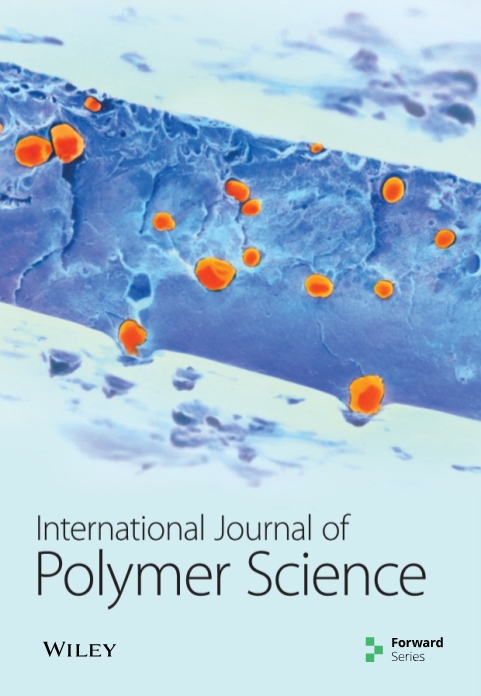Influence of Layering Pattern, Fibre Architecture, and Alkalization on Physical, Mechanical, and Morphological Behaviour of Banana Fibre Epoxy Composites
IF 4.4
4区 化学
Q2 POLYMER SCIENCE
引用次数: 0
Abstract
In the current investigation, the mechanical properties of epoxy composites reinforced with banana pseudostem fibres, specifically focusing on tensile and impact behaviour, are investigated. The manufacturing process employed the meticulous hand-lay-up technique to fabricate six distinct samples. These samples included various combinations of short and woven banana fibres, treated and untreated, as well as a hybrid configuration involving layers of woven and short fibres. A fixed weight ratio of 60% fibres to 40% epoxy matrix was maintained for consistency. To ensure optimal material integrity, a careful application of resin and hardener in a 10 : 1 weight ratio was layered, with each addition of fibre followed by thorough rolling to eliminate any potential bubbles. The density and void fraction of the resulting composites were meticulously assessed to gauge the influence of this layering approach. Additionally, an X-ray diffraction (XRD) analysis was conducted to ascertain the impact of the chemical treatment on the cellulose content of the fibres. Our findings revealed that the tensile and impact properties were notably superior in the woven fibre composites. In particular, the chemically treated woven banana fibre epoxy composite displayed impressive values of 64.95 MPa for tensile strength and 24.37 KJ/m2 for impact strength. To gain deeper insights into the structure-property relationship, test specimens were analyzed using scanning electron micrographs. Lastly, comparative analysis by mapping the tensile properties from our present work with those from existing studies was carried out.分层模式、纤维结构和碱化对香蕉纤维环氧复合材料物理、机械和形态行为的影响
在目前的研究中,研究了香蕉假茎纤维增强环氧复合材料的力学性能,特别是拉伸和冲击性能。制造过程采用了细致的手工制作技术,制作了六个不同的样品。这些样品包括经过处理和未经处理的香蕉短纤维和编织纤维的各种组合,以及涉及编织纤维和短纤维层的混合配置。固定重量比60%的纤维和40%的环氧基保持一致性。为了确保最佳的材料完整性,树脂和硬化剂以10:1的重量比进行分层,每次添加纤维,然后彻底滚动以消除任何潜在的气泡。精心评估了所得复合材料的密度和空隙率,以衡量这种分层方法的影响。此外,还进行了x射线衍射(XRD)分析,以确定化学处理对纤维纤维素含量的影响。研究结果表明,编织纤维复合材料的拉伸和冲击性能明显优越。特别是经化学处理的编织香蕉纤维环氧复合材料的抗拉强度为64.95 MPa,冲击强度为24.37 KJ/m2。为了更深入地了解结构-性能关系,测试样品使用扫描电子显微图进行分析。最后,通过绘制我们目前工作的拉伸性能与现有研究的拉伸性能进行了比较分析。
本文章由计算机程序翻译,如有差异,请以英文原文为准。
求助全文
约1分钟内获得全文
求助全文
来源期刊

International Journal of Polymer Science
POLYMER SCIENCE-
CiteScore
6.10
自引率
0.00%
发文量
55
审稿时长
>12 weeks
期刊介绍:
The International Journal of Polymer Science is a peer-reviewed, Open Access journal that publishes original research articles as well as review articles on the chemistry and physics of macromolecules.
 求助内容:
求助内容: 应助结果提醒方式:
应助结果提醒方式:


